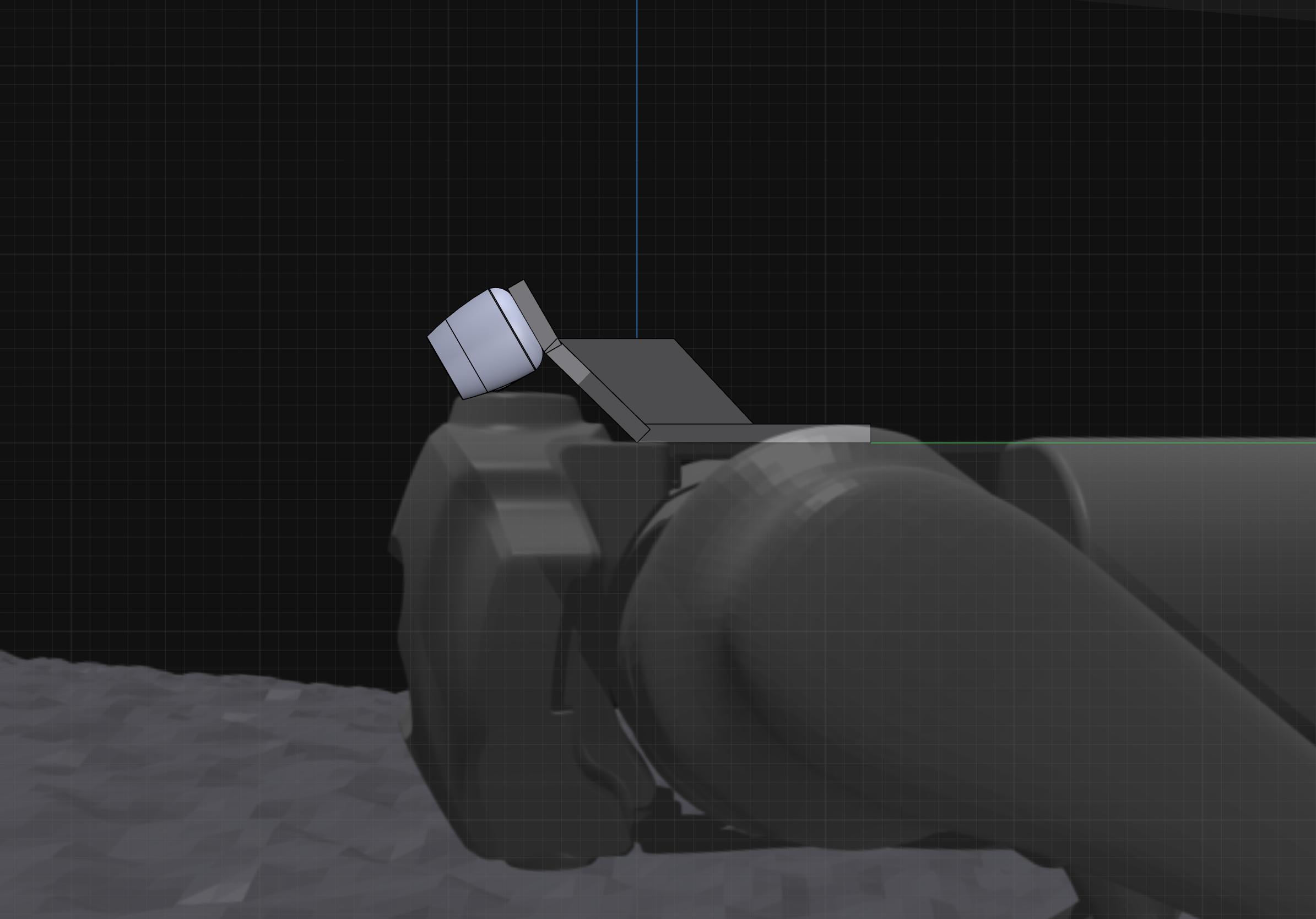4.1 KiB
Deploy the model on your real Unitree Go1 robot
This version shows an example of how to deploy the model on the Unittree Go1 robot (with Nvidia Jetson NX).
Install dependencies on Go1
To deploy the trained model on Go1, please set up a folder on your robot, e.g. parkour, and copy the rsl_rl folder to it. Then, extract the zip files in go1_ckpts to the parkour folder. Finally, copy all the files in onboard_script/go1 to the parkour folder.
-
Install ROS and the unitree ros package for Go1 and follow the instructions to set up the robot on branch
go1Assuming the ros workspace is located in
parkour/unitree_ws -
Install pytorch on a Python 3 environment. (take the Python3 virtual environment on Nvidia Jetson NX as an example)
sudo apt-get install python3-pip python3-dev python3-venv python3 -m venv parkour_venv source parkour_venv/bin/activateDownload the pip wheel file from here with v1.10.0. Then install it with
pip install torch-1.10.0-cp36-cp36m-linux_aarch64.whl -
Install other dependencies and
rsl_rlpip install numpy==1.16.4 numpy-ros pip install -e ./rsl_rl -
3D print the camera mount for Go1 using the step file in
go1_ckpts/go1_camMount_30Down.step. Use the two pairs of screw holes to mount the Intel Realsense D435i camera on the robot, as shown in the picture below.
Run the model on Go1
Disclaimer: Always put a safety belt on the robot when the robot moves. The robot may fall down and cause damage to itself or the environment.
-
Put the robot on the ground, power on the robot, and turn the robot into developer mode. Make sure your Intel Realsense D435i camera is connected to the robot and the camera is installed on the mount.
-
Launch 3 terminals onboard (whether 3 ssh connections from your computer or something else), named T_ros, T_visual, T_gru.
-
In T_ros, run
cd parkour/unitree_ws source devel/setup.bash roslaunch unitree_legged_real robot.launchThis will launch the ros node for Go1. Please note that without
dryrun:=Falsethe robot will not move but do anything else. Setdryrun:=Falseonly when you are ready to let the robot move. -
In T_visual, run
cd parkour source unitree_ws/devel/setup.bash source parkour_venv/bin/activate python go1_visual_embedding.py --logdir Nov02...where
Nov02...is the logdir of the trained model.Wait for the script to finish loading the model and get access to the Realsense sensor pipeline. Then, you can see the script prompting you:
"Realsense frame received. Sending embeddings..."Adding the
--enable_visoption will enable the depth image message as a rostopic. You can visualize the depth image in rviz. -
In T_gru, run
cd parkour source unitree_ws/devel/setup.bash source parkour_venv/bin/activate python a1_ros_run.py --mode upboard --logdir Nov02...where
Nov02...is the logdir of the trained model.If the ros node is launched with
dryrun:=False, the robot will start standing up. Otherwise, add--debugoption ona1_ros_run.pyto see the model output.If the ros node is launched with
dryrun:=False, the script will prompt you:"Robot stood up! press R1 on the remote control to continue ..."Press R1 on the remote control to start the standing policyPushing R-Y forward on the remote control to trigger the parkour policy. The robot will start running and jumping. Release the joystick to stop the robot.
Press R2 on the remote control to shutdown the gru script and the ros node. You can also use it in case of emergency.
Using the
--walkdiroption to load the walking policy e.g. (Oct24_16...), the standing policy will be replaced by the walking policy. Then you can use L-Y, L-X to control the x/y velocity of the robot and use R-X to control the yaw velocity of the robot.